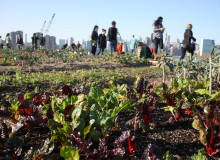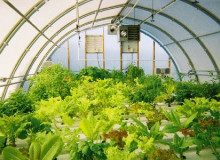food
If each community is self-sufficient in one staple - oil (e.g. avocado, macadamia, olive, canola, non-pungent mustard), sweetener (sugar cane, beet sugar, honey, pear concentrate, grape concentrate etc), some kind of starch or carbohydrate (e.g.
Colonial Beach High School
Oyster mushrooms have a high rate of reproduction. If the substrate is ground up finely and ideal conditions are provided the mushroom will be able to eat the substrate in just a few hours. The oyster mushroom can be eaten by humans and farm animals... Read More
I believe we should produce a vast network of desalinated water pumping systems, that is powered by clean energy (wind power, solar power, nuclear power, wave/tidal power, hydroelectric power and geothermal). The network would include vast high... Read More
A brewery in England has started stirring up more than beer.
Photo courtesy of Urban75.org (http://www.urban75.org/photos/suffolk/southwold-signs.html)
Are American breweries behind? Maybe they should hop on board the trend to become energy... Read More
by Miranda Green and Andrea Vittorio
The George Washington University group GroW has started a community garden on campus. The result: good food, local honey and a few dirty hands!
We know eating locally and organically is a healthier lifestyle, but did you also know that doing so can help reduce your carbon footprint? Not only does it contribute to a healthier lifestyle and planet, but eating locally and organically also... Read More
In the coming days in Washington D.C. researchers are likely to discuss the prospects of funding over half-a-billion three-dollar stoves, across the globe. The plan entails installation of clean stoves, which will help reduce the harmful carbon... Read More
Planet Forward
Richard Sakuma of Sakuma Bros. Farms talks about the need for incentives in the agriculture industry for farmers to move away from fossil fuels.






